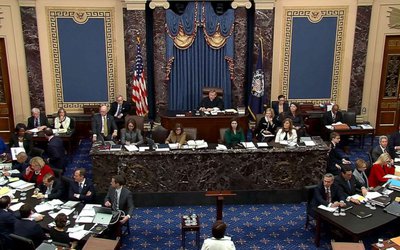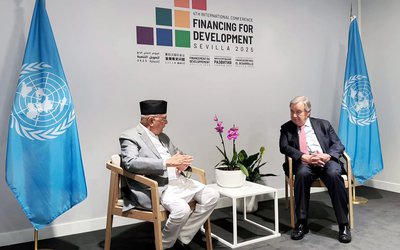Generation Z, the demographic group born between 1995 and 2010, represents 25.9% of the world population. Running between 7 and 22 years today, these people are our future. They are generally distinguished for being highly tolerant as they value diversity and believe in individuality. They live on five screens, moving quickly from TV to cell phone, iPad, laptop, video game console and, sometimes, using all of them at the same time. This generation is on Facebook, Instagram, Viber, Snapchat, WhatsApp, Emote and Snapchat. They are self-sufficient, as they have always had the technology nearby, and use it to investigate and solve problems on their own. They need everything, right now. They are believers of succeeding on their own. Most importantly, Generation Z is characterized by a strong commitment to social issues -- most of them practice volunteering and care about the sustainability and impact of the human beings and human values on the planet Earth.
Gen Z is on the rise. These young people are very aware about integration and diversity, and for them the defense of sexual, gender, or religious equality is something inescapable. They are self-taught, creative and overexposed to information. The Z's see the world through their screen, they are exposed to more violence, knowledge and possibilities than any other group. A clear example is the heroic bravery of Malala, who at the age of 16 was already an advocate of the right to education.
In Nepal 52% of the population falls under the
age of 7 to 24. Hence, Zen Z accounts for the largest segment of our country.
Zen Z should be an important force in the process of political change and
progress in Nepal. Democracy is supposed to be about choice, freedom and hope
and what kind of hope can we have if a leader who is 65 and above is leading
this nation. Most of these old leaders never had the potential. They promise
everything but never deliver on even a single one of their promises and have
never been accountable for their actions.
Love and hate, the two contrasting words best
define politics and its younger addressees. Politics is the foam in this social network and expressed freely
without overtures or restrictions. Young people
reach the age without ever having been politically baptized. Young people have
their own frailty but still remain open, available and generous. They are no
longer prisoners of ideologies as the previous generations were. They long for
authentic relationships and seek the truth but because it is not so in reality,
they live their lives hoping they will find it in themselves.
Generation Z were born social. In fact, nearly
92% of Gen Z has a digital footprint. They are a “global” generation with high
expectations. They desire more independent work environments. They are
highly educated, diverse and want to make a difference in the world. Based
on a research study, 72% of Gen Z say they want to start a business
someday.
The current crop of young people likes to be a part of the decision-making and not simply toe the line. They like the "win-win" schemes; are able to compromise but first have to be convinced. This generation is the next strategic target for anything we want to achieve. They are capable of changing the rules of the game in the political, economic and social contexts.
They grew alongside anti-political slogans such as "they do not represent us" and "let everyone go", and, therefore, show a high level of political skepticism, though they do care about social and humanitarian problems. As far as politics goes, they do not have much confidence in our current government. The change is not going to happen overnight, but a government that embraces polarization and arbitrary party platforms will further alienate Generation Z voters.
Generation Z are also called C generation because C stands for Connected, Creative, Collaborative and Communicating. Unlike Gen X, Gen Z create more than they share. The debates on the generations are becoming more and more important. The only way to meet the economic, ecological, technological, social and political challenges is to tap the energy of Generation Z.
At the end, the positive economy is an economy serving future generations, which promote responsible, sustainable and inclusive growth, respectful of the environment and serving society. The positive economy of today is truly the heart of the economy of tomorrow; it is both what is pushing into the underground of the planetary society and the fundamental element of response to the major crises that we are experiencing today.
Ranju Darshana (Generation Z) effect is a perfect example of when indifference makes a big difference in society. Disappointed over current politics, due to the excesses of their traditional schemes, young people look for options to solve their problems and express their opinions.
It is not only young people but the whole society, in general, has moved away from political life. Most of the Nepalese people repudiate the formal structures of politics in Nepal. To resolve the apathy of young people towards politics, young people of Nepal must be given opportunities for participation. Young people now feel that it is virtually impossible to influence the country's political decisions, which ultimately results in the feelings of discomfort. Young people move away from political parties because these parties are not practicing democracy from within to hear ideas, debate them, and refine understanding.
The huge gap between the older and younger generations that has emerged in our country in the past decade is largely explained by the reluctance of young people to engage in dialogue and debate with older people. All forms of political activity among young people have been curtailed to almost nothing, but the level of political immobility was raised to the extreme limit. Loss of clear social attitudes and political apathy have caused the information gap in the structure of consciousness.
All the new features of Generation Z have become more important with the fact that in 2020, this group will constitute 36% of the global workforce, and by 2050 it will be the largest age group. They will be the engine of the new global economic environment. In fact, this generation wants to change the world and has a greater vision of the future. In short, they are more realistic, more global and more digital than the previous generations. There is a generation that wants to save the world, but still does not know how. We have to show the correct path and prepare them so they can lead and make a difference. These people hate politics but still pin their hopes in the game.
(The author is a lecturer and IT consultant. He also writes fiction under the name of Kapeed Joshi. He can be reached by email at info@dipakjoshi.com.np.)

Deepak Raj Joshi
(The author is a lecturer and IT consultant. He also writes fiction under the name of Kapeed Joshi. He can be reached by email at info@dipakjoshi.com.np.)
- Criminal Governance & Neopatrimonialism
- Jul 29, 2024
- Participatory Democracy
- Dec 07, 2023
- Rise Of Populism Boon Or A Bane
- Aug 13, 2023
- The Collapse Of Confidence And The Rise Of RSP
- May 17, 2023
- Lottocracy
- Apr 30, 2023















